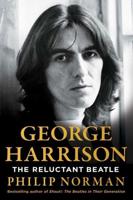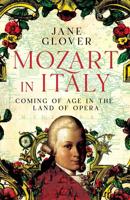Publisher's Synopsis
*Analyzes the themes and progression of the composers' most famous works, comparing and contrasting them to each other and other composers' great works.
*Includes pictures of important people and places.
*Includes a bibliography on each composer for further reading.
*Includes a list of both composers' works.
Mozart once called music "my life", and indeed few were as naturally gifted at it. Mozart's memory and genius for music allowed him to compose lengthy works, even full-length operas, without transferring them to paper until he had fully visualized and retained them. He regarded copying as a tedious task, and this caused no small amount of consternation among performers, in particular the orchestra, some of whom received their parts minutes before curtain. This was said to be the case for the premiere of Don Giovanni, where Mozart was furiously scrawling and handing out parts to the overture with the audience in attendance. Surprisingly, these entire works, sometimes hundreds of pages, not penned until they were complete in his mind, usually arrived to the manuscript without a single blemish or change of heart. Mozart's eccentricities are remembered centuries after his death, to the point that much of his life, illnesses and death have been mythologized, and today a lot of his legacy has been shaped by the manner in which his personality has been depicted in biographical works like Amadeus.
Among all of history's greatest musicians, few have been as admired or influential as Ludwig van Beethoven, whose name remains synonymous with composing. Works like his Fifth and Ninth symphonies remain instantly recognizable over 200 years after they were composed, and their sweeping and grandiose nature are made all the more amazing by the fact that their author was gradually going deaf and couldn't hear music very well by the time he was composing them. Similarly, the "Moonlight Sonata" and "Für Elise" are renowned across the world and are some of the most famous piano pieces of all time.
At the same time, Beethoven's work ushered in a new era in art, helping the transition from the Classical era to the Romantic era. In the 180 years since his death, Beethoven has been enshrined by modern society as one of the most esteemed classical composers in the history of civilization, but he had a profound and immediate influence on the German musical lineage that would pass through Robert Schumann, Richard Wagner, Gustav Mahler and Richard Strauss all the way to composers of the 20th and early 21st centuries. At a time when music was very much viewed as science, Beethoven was a giant in the field, and as such he was viewed as a genius. As Beethoven himself once put it, "Music is the one incorporeal entrance into the higher world of knowledge which comprehends mankind but which mankind cannot comprehend."
Mozart and Beethoven comprehensively analyzes the themes and revolutionary advancements of both composers' music, looking at their most famous works and comparing and contrasting them. Along with pictures of important people, places, and events, you will learn about Mozart and Beethoven like never before, in no time at all.









